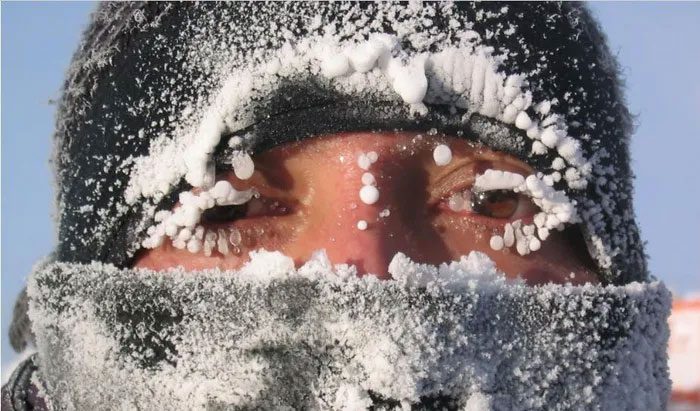A team of scientists led by Dr. Munia Ganguli from the Indian Institute of Science and Innovation has developed a liquid solution containing dimethyl sulfoxide (DMSO) and polyvinyl alcohol (PVA). Both compounds are widely used in laboratories for cryopreservation of cells, with DMSO preventing ice crystal formation inside the cells and PVA preventing crystals from forming between them and damaging their outer membranes.

This moisturizer helps prevent frostbite on cold days.
After conducting several experiments with different ratios of the two chemicals, the researchers ultimately found the mixture that worked best in protecting cultured cells from damage due to exposure to freezing temperatures. Named SynAFP, this mixture provides a cell survival rate of approximately 80%.
Next, the research team combined SynAFP with commercial aloe vera cream, which was then applied to the skin of laboratory mice 15 minutes before they underwent a “freezing challenge.”
Compared to the control group, the mice treated with the cream experienced smaller frostbite wounds, less tissue damage and inflammation, along with faster healing of wounds. However, further work is needed as it was found that applying the cream 30 minutes before exposure had no protective effect. Scientists also need to determine whether this cream is effective on humans and how often it should be reapplied.


















































